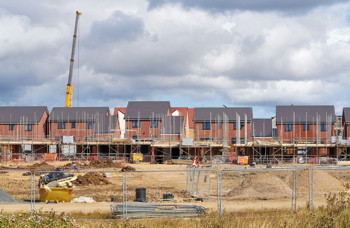Can offsite solve the problems of construction?

As the House of Lords Science & Technology Committee produces its report on the benefits of offsite manufacture, the industry faces some tough questions about performance
The House of Lords Committee on Science & Technology produced its report on offsite manufacture (OSM) for construction in July. The Committee was focused on finding ways to improve what government sees a poorlyperforming and badly managed sector.
In the words of the Committee: “Given that the UK already lags behind other countries in construction productivity, and is facing a labour shortage, the government and the construction sector must urgently find solutions.”
One of the key drivers for this focus on improving construction is the government’s requirement for more new housing. However, the spotlight is not only on housebuilders. Infrastructure and non-domestic building projects also need to be carried out more effectively and with better results. Further pressure is being applied by Brexit, which will squeeze the availability of qualified construction personnel.
The answer
The House of Lords Committee comes down very much in favour of offsite methods, saying that: “It can help to increase productivity in the construction sector while reducing labour demands, improving the quality and efficiency of buildings, and reducing the environmental impacts associated with traditional construction.”
The report goes on to offer a raft of potential benefits that could arise from adoption of these methods, including:
•Better quality buildings and infrastructure
•Enhanced client experience
•Fewer labourers and increased productivity
•Creation of regional jobs away from large conurbations.
In fact, according to this report OSM is suitable for the construction of important social infrastructure such as hospitals and houses. What’s more, if government is to achieve its aim of building 300,000 houses a year by 2020, OSM would be the only way to meet that goal.
The question is, if offsite construction is so good, why don’t we do more of it? The Committee says that application of OSM is limited because of the way the construction industry currently operates.

The questions
“OSM requires collaboration between clients, designers and contractors from an early stage but much of the evidence the committee received painted a picture of a construction sector that is fragmented and lacking in trust,” states the Committee’s report.
Anyone who has worked in the industry for any length of time will be nodding in agreement at this point. So what can be done to remove the problems that have beset construction for so long and enable it to move forward with a modern approach?
According to the Committee: “To change this, action is needed not just by the sector, but by the government as well.”
Some steps towards achieving a shift are already here. The new Construction Sector Deal (see MBS News page 5, August 2018 issue) should be at the heart of creating change, according to the Committee, which says that government and the Construction Leadership Council (CLC) will have to get to grips with ensuring that this Deal is successful. Training for new skills via the new technical qualifications will be vital, as will a ‘presumption in favour’ of offsite methods.
However, delivering training and changing government contracts are relatively easy compared to mending an industry that is ‘fragmented and lacking in trust’.The Committee acknowledges: “The current business models and the traditional model of financing and cash flow in the construction sector make it difficult to deliver the benefits of offsite manufacture for construction.”
The Committee also says that the CLC must ‘work to provide the sector with the resources and leadership to become better integrated’.
The solution of offsite manufacture for construction raises as many questions as solutions. Can the industry finally move to collaborative working – as recommended so often over the years by the likes of Latham and Egan? Is it possible to focus on the whole-life value of a building rather than its capital cost?
The Committee has said that the industry and government need to work together to bring about change. One of the most important things government could do to is move forward with the Aldous Bill which proposes a better approach to retentions. That would represent a significant step towards more stable business, and help to build some much-needed trust.
* See the MBStv interview with Lord Fox, who spoke to us about the report on the day of its launch.







